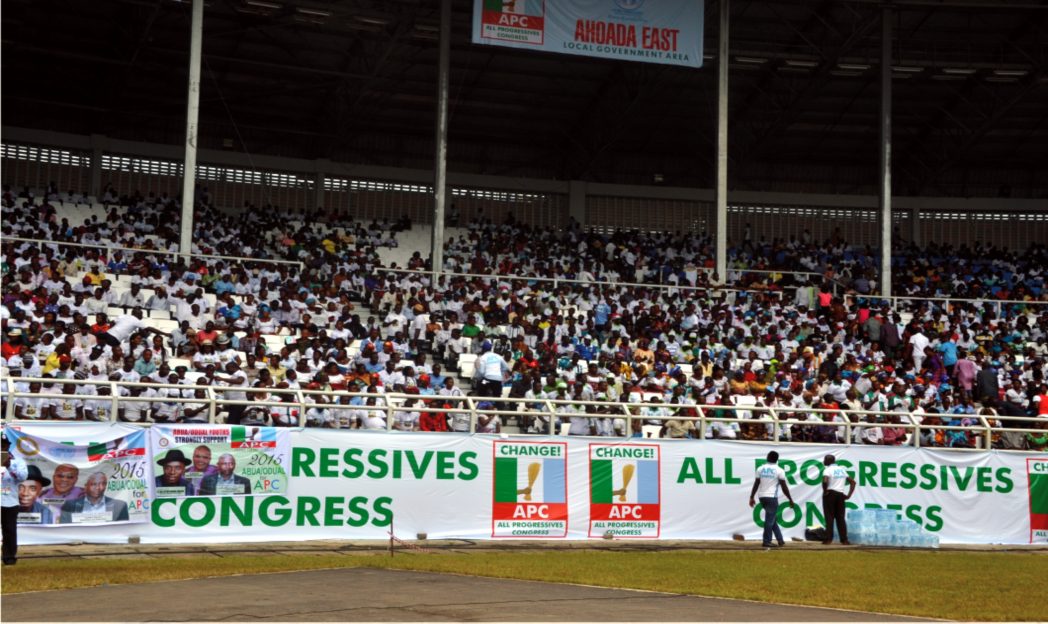Business
Minimum Wage Deregulation; TUC Gives Senate One-Week Ultimatum
The Trade Union Congress (TUC) has given the Nigerian Senate a one-week ultimatum to clarify its position on the removal of Minimum Wage Laws from the Exclusive List.
In a communiqué jointly signed by the President of the union, Mr Bobboi Kaigama and the National Secretary, Mr Musa Lawal, TUC said this was necessary before a follow-up action.
The communiqué came at the end of an emergency meeting of the TUC Central Working Committee in Lagos State on Saturday.
According to the communiqué, the purported amendment by the Senate, if allowed to stand, would produce a number of undesirable implications.
He said, “The CWC observed that there are conflicting reports as to the true state of affairs.
“So, the leadership of the National Assembly should clarify the true position of the amendment within one week from today.
“We say ‘NO’ to the minimum wage deregulation and we resist the attempt with our capacity.
“The CWC-in-session mandated the leadership of TUC to relate with the NLC and allies in civil society organisations to mobilise without further delay for a follow-up action.”
It said the amendment would create a chaotic and potentially destabilising industrial relations environment in the country.
“Politics will be introduced into wage determination, in particular during elections, as was the case in the First Republic among Regional Governments.
“Minimum wage which is a product of collective bargaining should not be made a state law, because both the private and public sectors are involved,” the communiqué read.
It also added that the amendments would negate the spirit and practice of the International Labour Organisation Convention 131 which the nation domesticated in the 1979 Constitution.
“While we give them one week, our mobilisation has commenced. Immediately after the expiration of the one week, there will be follow-up action and nothing more.
“We will not get back to them anymore. We want the Senate to be very explicit,” the TUC said.
The communiqué commended the House of Representatives for voting to retain the minimum wage on the exclusive list in its amendment.
Removal of the minimum wage from the exclusive list empowers states and individual employers to decide on and set their own minimum wage.
This would be done without recourse to the national minimum wage.
Business
Kenyan Runners Dominate Berlin Marathons
Kenya made it a clean sweep at the Berlin Marathon with Sabastian Sawe winning the men’s race and Rosemary Wanjiru triumphing in the women’s.
Sawe finished in two hours, two minutes and 16 seconds to make it three wins in his first three marathons.
The 30-year-old, who was victorious at this year’s London Marathon, set a sizzling pace as he left the field behind and ran much of the race surrounded only by his pacesetters.
Japan’s Akasaki Akira came second after a powerful latter half of the race, finishing almost four minutes behind Sawe, while Ethiopia’s Chimdessa Debele followed in third.
“I did my best and I am happy for this performance,” said Sawe.
“I am so happy for this year. I felt well but you cannot change the weather. Next year will be better.”
Sawe had Kelvin Kiptum’s 2023 world record of 2:00:35 in his sights when he reached halfway in 1:00:12, but faded towards the end.
In the women’s race, Wanjiru sped away from the lead pack after 25 kilometers before finishing in 2:21:05.
Ethiopia’s Dera Dida followed three seconds behind Wanjiru, with Azmera Gebru, also of Ethiopia, coming third in 2:21:29.
Wanjiru’s time was 12 minutes slower than compatriot Ruth Chepng’etich’s world record of 2:09:56, which she set in Chicago in 2024.
Business
NIS Ends Decentralised Passport Production After 62 Years
Business
FG To Roll Out Digital Public Infrastructure, Data Exchange, Next Year
-
Maritime3 days ago
Minister Tasks Academy On Thorough-Bred Professionals
-
Maritime3 days ago
Customs Cautions On Delayed Clearance, Says Consignees May Lose Cargo
-
Maritime3 days ago
NCS Sensitises Stakeholders On Automated Overtime Cargo Clearance System
-
Maritime3 days ago
Lagos Ready For International Boat Race–LASWA
-
Maritime3 days ago
Shoprite Nigeria Gets New Funding to Boost Growth, Retail Turnaround
-
Politics4 days ago
I Would Have Gotten Third Term If I Wanted – Obasanjo
-
Sports3 days ago
Bournemouth, Newcastle Share Points
-
Sports3 days ago
Zidane’s Son Switches Allegiance To Algeria


